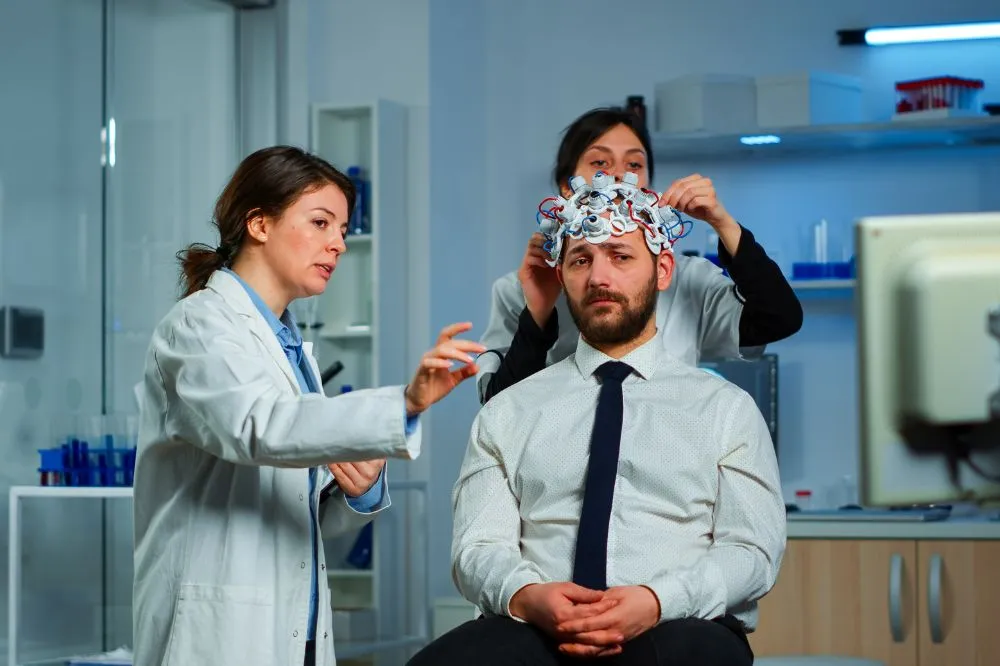Summary: Substance abuse disorder (SUD) is a significant health problem. Drug addiction is among the leading causes of mortality in young adults. Medical specialists often struggle to treat SUD, and it has a high relapse rate. A new longitudinal study with a follow-up period of 32 years shows that those who abuse substances in adolescence are more likely to abuse substances in their older age. Thus, people are not likely to grow out of their old addiction. This underlines the importance of seeking early addiction treatment and prolonged care.
Substance abuse disorders are the leading cause of preventable morbidity and mortality in young adults. The problem of substance use disorder (SUD) is even increasing in older adults. Studies now suggest that it is something that starts in adolescence, and people are unlikely to grow out of it.
SUD, or addiction to various substances, including drug addiction, is now a well-studied phenomenon. It is a problem of colossal scale. What is worrisome is that there are no signs that people are anywhere close to overcoming this problem. It remains a major health problem, and even worse are the findings that its prevalence continues to increase.
Treating teenage drug and alcohol abuse is challenging, and there are high relapse rates. Thus, there is a need to counter the problem in its early stages. Hence, it is vital to prevent or manage SUD in adolescents and young adults.
Generally, as people grow older, their habits and preferences change. Therefore, they are pretty likely to give up certain habits. However, the new findings published in the journal JAMA are worrisome, as they indicate that people are not likely to grow out of the problem of SUD.
The findings of the study done by the New University of Michigan are pretty grim. It has been quite a long study with a follow-up period of 32 years. The study found that most of those addicted to various substances at the age of 18 were still suffering from SUD, even after three decades.
Some of the significant findings of study were:
- The study found that addiction problems or SUD was common in adolescents, with 12% living with severe symptoms.
- The follow-up study found that those with severe SUD were more likely to abuse substances or suffer from addiction as adults.
- This relationship between SUD at an early age and the risk of addiction later in life was more visible in those addicted to alcohol, cannabis, and other drugs in their adolescence.
- Most adults prescribed medications like opioids, sedatives, and benzodiazepines were those living with SUD during their adolescence.
Experts say this is a wake-up call, as it shows that the problem of SUD starts quite early and continues to affect people for the rest of their lives. Furthermore, it means that treating addiction at a young age is of significant importance, as preventing addiction in those living with SUD in adolescence is quite challenging.
Another issue is the choice of medications. Many medications used to treat alcohol and opioid addiction may also increase the risk of SUD later in life. Thus, people treated with anti anxiety drugs, painkillers, and given sedatives at a young age are also more likely to develop SUD later in life.
It also underlines the importance of history taking when treating older adults living with SUD. Knowing more about their past habits and what medications they took as young adults is vital.
The study also found that most people living with SUD did not seek opioid treatment. Thus, educating people and raising awareness of the topic is also necessary. This education regarding the health risks of addiction must continue through adulthood.
Additionally, people with a history of abusing multiple substances during adolescence must be treated as high-risk individuals. These are the people who are pretty likely to misuse drugs later in their life.
Further, experts recommend that there is a need to find innovative ways of preventing SUD in older adults. For example, health insurance may include other services aimed at preventing and treating relapse later in life.
This study clearly highlights the importance of long-term follow-up of individuals who were treated for SUD as young adults. Such individuals should get continuous education and care during their adulthood.






